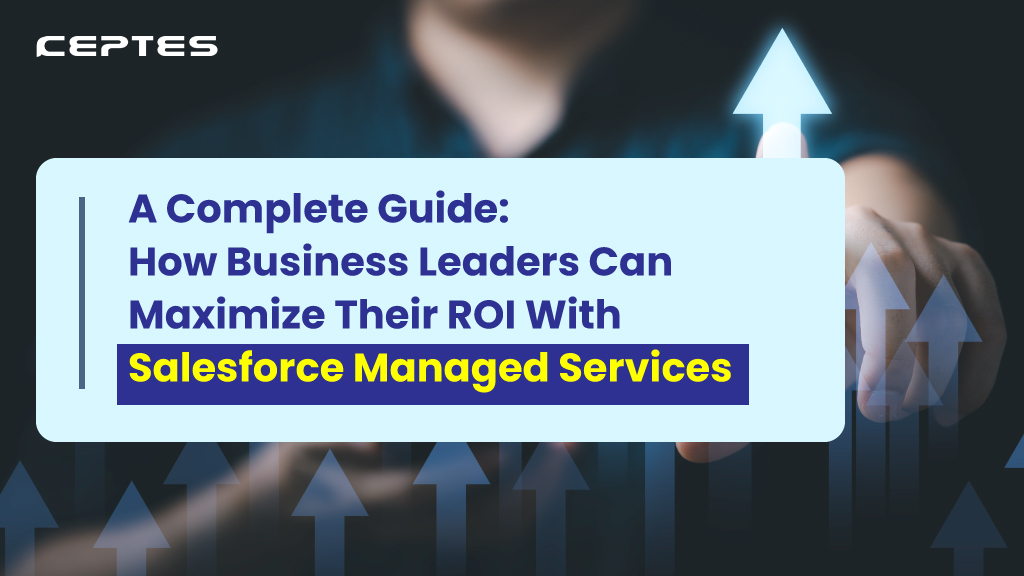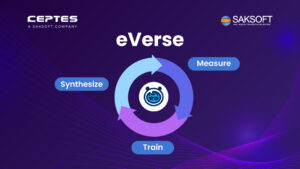Salesforce has turned out to become one of the major tools used by businesses these days.
One can, without hesitating say, that the CRM platform has been able to transform how businesses operate. According to one of Salesforce’s own user statistics, 9 out of 10 Fortune 500 companies use their CRM platform.
So, when it comes to ensuring that businesses utilize Salesforce to its full potential, it becomes important to have the right people to do that job. This is where Salesforce Managed Service Providers come into play.
Businesses can utilize their expertise into assessing the right and wrong decisions they’re taking pertaining to their Salesforce org.
What is Salesforce Managed Services?
Salesforce Managed Services is a way in which organizations can ensure that their business is getting maximum output from their Salesforce org. It involves the organizations externally administering their Salesforce operations.
This concept gained relevance in the 90s and early 2000s as businesses started relying on technology and related services quite heavily.
This reliance meant that these businesses could not afford to lose out on their business due to downtime, loss of data, productivity issues associated with the services, and a delay in servicing.
Salesforce Managed Services provides a more robust, proactive, and accountable way for organizations to manage their technologies and keep their IT budget in account. As the name suggests, a Salesforce Managed Services partner will act as a service provider to the organization that brings them on board in a lot of scenarios.
They will provide the necessary technical support, assist the in-house teams with updates, ensure system security, and more.
As organizations evolve, and include Salesforce in almost all the major aspects of their organization, Managed Service Providers can diligently work towards ensuring that they are able to identify issues and opportunities and work towards them proactively, without losing on time and revenue.
What Activities Are Included in Salesforce Managed Services?
When implemented correctly, Salesforce Managed Services have the capability to increase the overall business value by a lot.
Here are some of the activities that are undertaken in Salesforce Managed Services.
- Strategic Planning: Getting Salesforce Managed Services onboard is a great way to plan and set goals. A professional Salesforce Managed Services entity can help in setting up and planning an effective Salesforce org.
- Salesforce Platform Optimization: Salesforce is a massively powerful tool. However, without proper technical know-how and functional knowledge, businesses might not be able to use the platform to its full potential.
Hence, one of the activities that a Salesforce Managed Service provider conducts is to ensure that the features and functions of the platform are being used efficiently. - Enhancements: A sign of a properly working Salesforce org is consistent enhancements that come in from time to time for continued delivery, refining backlogs, and streamlining business processes.
- Industry Experts: Having an in-house team might seem a more practical decision, but it isn’t the most prudent one. An in-house team, as great as they might be, might not have the right know-how and technical knowledge of Salesforce org and how to unleash its full capacity. Experts bring their years of experience and know-how to the table before taking a decision.
- Business Reviews and Reports: A professional Salesforce Managed Service provider will help you assess what’s going right and what’s not by looking at periodic reports that give a clearer picture of the efforts being taken, helping you achieve your goals faster with Salesforce.
- Marketing Automation: One of the most vital functionalities of Salesforce includes its automation capabilities. With the right technical expertise, businesses can create ideal journeys for their customers using Pardot.
- Technical Support: When you implement Salesforce Managed Services, your business gets regular, round-the-clock protection and support. Technical support functions like fixing bugs, system crashes, system checks, and issue resolution are some of the things the team takes care of.
- Training: Salesforce service providers provide regular workshops and training sessions to your Salesforce Admin. This keeps the whole sales team updated with all the latest events and new developments in the Salesforce platform.
What does Salesforce Managed Services Bring To The Table?
Getting a professional Salesforce Managed Service provider on board is a wise decision for your business. The service provider doesn’t just come with their expertise but brings a host of other benefits to the table. Here are some of them.
- A More Efficient IT Team: A Salesforce Managed Services provider identifies, analyzes, and provides solutions to usual IT-related issues and risks. They provide external and expert assistance to a business’s tech team. This makes the IT team’s work easier and more efficient as they can focus on better processes and faster delivery of projects.
- Seamless Support: Managed Services also take care of the regular updates as per the three major releases of Salesforce every year, and provide support for the same. These updates are undertaken and implemented without hampering regular business activities.
- A Proactive Approach: With a dedicated team that is accountable to ensure you get the maximum benefit out of your Salesforce platform, the overall approach becomes more proactive. The service-providing team takes care that all the Salesforce best practices are implemented that improve the efficiency of the overall operation. Your business will be able to identify the areas that require more attention, areas that are obsolete, and which might need more investment.
- Scalability: When a Salesforce Managed Service provider starts taking care of the day-to-day approach that is to be followed and ensuring its efficiency, you, as a business owner can start working towards your overall business goals and vision. Moreover, there’s no need to hire or set up a new team onboard. It becomes more about ensuring that the service providers work closely with your existing team for better efficiency.
- Addressing the Skill Gap: One of the biggest challenges that businesses face is to get the right talent onboard. With a Managed Service provider, this challenge gets resolved to a large extent. As a business, you can rest assured that the team working on your Salesforce org will be a bunch of experts who know their job, and understand each and every element closely.
- A Customer-focused Approach: Bringing an external Salesforce Managed Service provider provides a fresh, outsider’s perspective to the ongoing engagements and processes that are currently undergoing in the existing Salesforce org. In this manner, they will be able to come up with optimum solutions to provide more practical solutions.
- Cost-Effective Solution: One of the biggest advantages that bringing a Salesforce Managed Service Provider has is, that it helps save time, and money spent on hiring, recruiting, onboarding, and maintaining an in-house team. Users of Managed Services get ideas that help them be ready for different situations.
Easier Than Ever To Attain Salesforce Managed Services
Up until a few years ago, Salesforce Managed Services were something that was only accessible to firms with a large number of resources.
However, with the rise in the penetration of Salesforce-using companies, getting the right Salesforce service providers has become more accessible and attainable to more organizations with lesser budgets and smaller teams as well.
Many organizations these days are moving to bring in Managed Service Providers to their organizations, to bring in the technical expertise that they can layer with their in-house team.
It is better for your business to assess your team’s bandwidth, level of expertise, a roadmap for the project, and how Salesforce can become a part of that picture.
Is There An Alternative To Salesforce Managed Services?
An organization that doesn’t have a Salesforce Managed Service provider can rely on other methods to get the best out of its Salesforce capabilities.
These organizations can then manage their Salesforce via a variety of means, which can include employing a full-time Salesforce team of an administrator or a developer, an IT personnel, or an outside vendor in specific scenarios.
Hiring an in-house Salesforce admin seems like a logical thing to do, but if and when they decide to exit your organization, the knowledge of your entire Salesforce org goes with them. Moreover, if your business relies heavily on Salesforce, relying on a generic IT professional might not be the best thing to do.
Similarly, relying on an external vendor might not be beneficial for the organization. It simply means that the organization is following a break-and-fix model for their Salesforce org. While this might seem cost-efficient, there might be a lag between the time the issue has been communicated, and when it gets resolved.
Does Your Business Need Salesforce Managed Services?
Organizations these days are opting to upgrade their Salesforce at every step. As a business evolves and grows, there lies an integral need for ensuring that its Salesforce requirements are also met at each step.
Before opting for a team to manage your Salesforce requirements, it is essential to identify the gap areas it is going to fulfil. If the internal team is able to cater to your Salesforce Managed Services requirements, getting outsourced help can be reconsidered.
In scenarios where your business isn’t able to fulfil the complete Salesforce requirements and use it to its full potential, getting Salesforce Managed Services is a good idea.
Moreover, any business shall focus on its core activities, instead of micro-managing its Salesforce functionalities. Hiring a Salesforce Managed Service provider has enormous benefits, get to know all of them by clicking “Finding Your Way Through Salesforce Managed Services”.
Getting in touch with a Salesforce Managed Services provider can help you assess if there are any improvements that you can make in your existing Salesforce-related work and how to exploit it to generate maximum value from it.


















